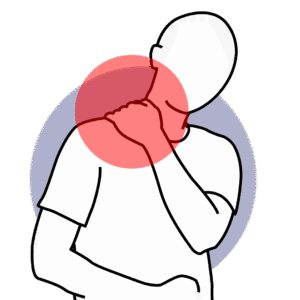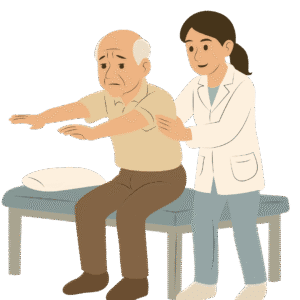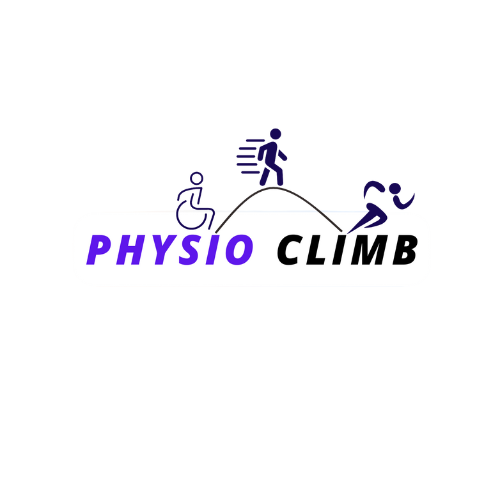
Get Relief from Shoulder Impingement with Physio Climb
Shoulder pain is one of the most common complaints seen in physiotherapy clinics. Among the various causes, Shoulder Impingement Syndrome is a leading reason why patients seek professional help. This painful condition restricts movement, weakens the arm, and interferes with daily life.
At Physio Climb, Sector 105, we specialize in advanced physio therapy for shoulder conditions, helping patients from Express View Apartment Sector 105, HIG Flats, and ATS One Hamlet overcome pain and regain full function. Whether you are searching for the best physiotherapy treatment near me or simply want a trusted solution for long-lasting recovery, Physio Climb is here to help.
What is Shoulder Impingement Syndrome?
Shoulder impingement occurs when the space between the acromion bone and the rotator cuff tendons narrows, causing compression and irritation. This can happen during activities like reaching overhead, lifting, or even sleeping on the affected side.
Common symptoms include:
- Sharp or pinching pain while lifting the arm
- Weakness in daily activities like carrying groceries
- Night pain, especially when lying on the shoulder
- Reduced range of motion
If left untreated, shoulder impingement can progress to rotator cuff injuries or tendon tears, which require longer recovery. This is why early diagnosis and starting physical therapy is essential.
Why Choose Physiotherapy Over Surgery?
At Physio Climb, Sector 105, we believe surgery should always be the last option. In most cases, physiotherapy is highly effective in treating shoulder impingement syndrome and restoring full function.
Our physiotherapy approach focuses on:
- Pain management – through manual therapy, electrotherapy, and soft tissue release
- Strengthening – especially rotator cuff and scapular stabilizers
- Posture correction – reducing stress on the shoulder joint
- Lifestyle advice – activity modification, ergonomics, and home-based programs
Many patients from Express View Apartment Sector 105, HIG Flats, and ATS One Hamlet share their success stories, highlighting how physio therapy relieved their pain without surgery.
Causes and Risk Factors
Several factors can lead to shoulder impingement:
- Repetitive overhead activities (athletes, manual workers, office workers with poor posture)
- Muscle imbalances or weak rotator cuff muscles
- Poor posture leading to altered shoulder mechanics
- Previous injuries such as falls or fractures
- Age-related wear and tear
At Physio Climb, we carefully assess whether the impingement is external (subacromial) or internal (within the joint) to create a personalized treatment plan.

Rehabilitation Approach at Physio Climb
We design structured and progressive programs to ensure long-term recovery. Our rehabilitation is divided into three phases:
- Pain Relief Phase
- Manual therapy for stiffness and muscle tightness
- Electrotherapy (TENS, ultrasound) for inflammation
- Gentle mobility and stretching exercises
- Strength & Stability Phase
- Strengthening rotator cuff muscles (supraspinatus, infraspinatus)
- Retraining scapular stabilizers like trapezius and serratus anterior
- Postural correction exercises to prevent recurrence
- Return to Function Phase
- Progressive strengthening with resistance bands and weights
- Sport-specific and activity-specific drills
- Functional exercises to restore confidence in movement
Many patients from ATS One Hamlet have successfully returned to sports, work, and fitness routines after structured rehabilitation at Physio Climb.
At-Home Shoulder Exercises
Alongside clinical sessions, our physiotherapists recommend safe, home-based exercises:
- Isometric Internal & External Rotations – Build shoulder stability
- Side-Lying External Rotations – Activate rotator cuff muscles
- Shoulder Scaption with Light Weights – Improve movement control
Patients in HIG Flats and Express View Apartment Sector 105 report significant improvements when combining these exercises with guided sessions at Physio Climb.

When to See a Physiotherapist
Most shoulder impingement cases improve within 2–4 weeks of physiotherapy. However, you should consult the best physiotherapist immediately if:
- Pain persists beyond 6 weeks
- Shoulder pain disturbs your sleep
- You experience numbness, tingling, or weakness
- Pain begins after an accident or fall
Delaying treatment can make recovery longer and increase the risk of permanent injury.
Why Patients Trust Physio Climb
Patients often describe Physio Climb, Sector 105 as one of the best physiotherapy treatment near me because of our commitment to patient care. Here’s why:
- Expertise: Dr. Roshan and team is one of the best physiotherapist in Sector 105, specializing in advanced shoulder rehabilitation.
- Personalized Programs: Each treatment plan is designed around your body, lifestyle, and goals.
- Convenience: Accessible for patients living in Sector 105, Express View Apartment Sector 105, HIG Flats, and ATS One Hamlet.
- Holistic Care: We don’t just treat pain — we focus on long-term prevention and functional recovery.
Patients searching for fisyo, physical therapy, physio therapy, or one of the best therapist near me consistently choose Physio Climb.
Key Takeaways
- Shoulder impingement syndrome is common but treatable.
- Physiotherapy is the first-line, most effective treatment option.
- At Physio Climb, Sector 105, patients from Express View Apartment Sector 105, HIG Flats, and ATS One Hamlet receive world-class rehabilitation.
- Early treatment ensures faster recovery and prevents chronic injuries.
Don’t ignore shoulder pain — the earlier you treat it, the faster you recover.
👉 Book your appointment today at Physio Climb, Sector 105 and experience the difference of one of the best physiotherapy treatment near me.
💬 Trusted by patients from Express View Apartment Sector 105, HIG Flats, and ATS One Hamlet.
💪 With dr. Roshan and team is one of the best physiotherapist in sector 105, you’ll be in the safest hands for long-term recovery.
